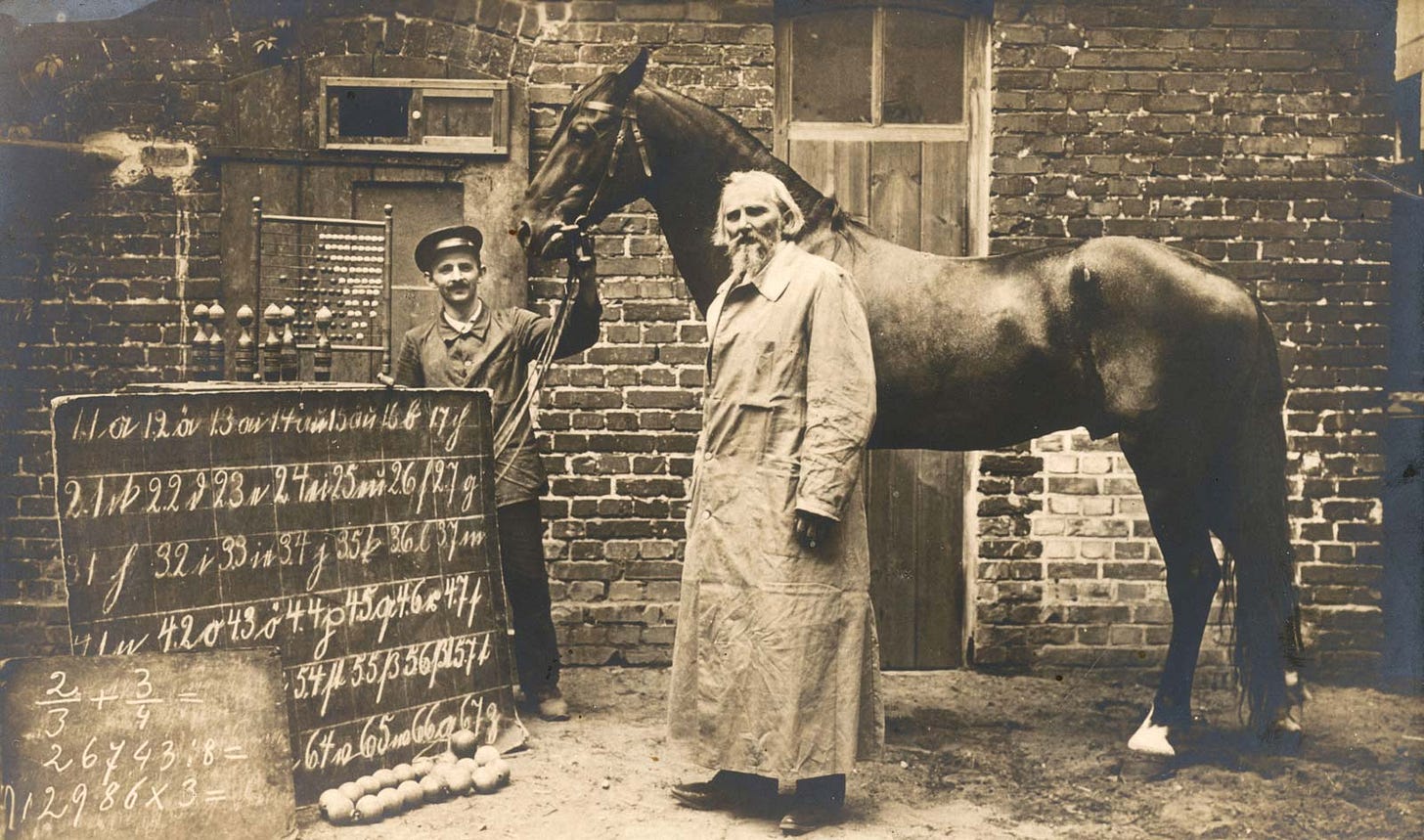The Clever Hans Effect
Clever Hans grew up in 19th century Germany and never had formal schooling. Although, they wouldn't have let him in the classroom if he ever tried. Despite his lack of education, he supposedly learned to add, subtract, multiply, divide, use fractions, spell words, and even understand German. But Hans could never master talking.
That's because Clever Hans was a horse.
"If the eighth day of the month comes on a Tuesday, what is the date of the following Friday?"
Clever Hans would tap his hoof eleven times.
A person was picked out of a crowd and asked their name, "Dohna". An hour later when Dohna returned and Clever Hans was asked for his name, Hans picked out the letters "D-o" from the blackboard.
The German board of education appoined the Hans Commission to investigate if there were any tricks involved in Osten's presentations. They found none.
Finally, Hans was passed off to Oskar Pfungst, a psychologist. He ran a series of experiments.
Could Hans answer questions if they were asked by other people? Yes.
Next Pfungst tried something else. He had the questioner ask questions that they themselves didn't know the answer to. Hans was only able to answer 6% of questions correctly.
Pfungt found that Hans was closely observing the questioner's subtle cue. As Hans would approach the final tap, the questioner's tension would released – they might change their posture or facial expression – and Hans would know to stop tapping.
Even more interesting is that these subtle cues aren't something we can control. In psychology, this falls under the observer-expectancy effect, a cognitive bias where a researcher's cognitive bias causes them to subconsciously influence the participants of the experiment.
One way to combat the observer-expectancy effect is to run double-blind tests – where neither the participants or the experimenters know which subjects are in the control group and which are getting treatment.
As for Hans, we don't know what his fate was. His owner died in 1909, and he moved from owner to owner for the next few years before the records disappear.

